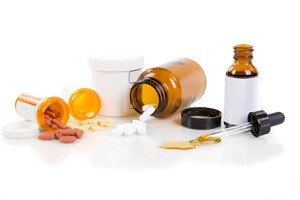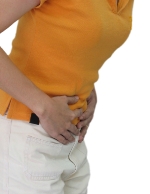Levsin

Trade name(s): Levsin, A-Spas, Anaspaz, Colidrops, Cystospaz, Dispas, Hyco, HyoMax, Hyosol, Hyosyne, IB-Stat, Levbid, Levsinex Timecaps, Losamine, Medispaz, Neosol, NuLev, Spacol Liquid, Spasdel, Symex
Generic name: Hyoscyamine sulfate
Preparations: tablets, capsules, elixir, solution, injection
Uses for IBS:
Hyoscyamine is an anticholinergic gastrointestinal agent with antimuscarinic activities. It is used to treat functional bowel disorders like diarrhea-predominant IBS. It decreases gastric secretion and gastrointestinal motility. However, as with other antimuscarinics, it has limited efficacy with these disorders. It should only be used if other measures have been of little or no benefit, such as diet, counseling, and removing of environmental factors.
Hyoscyamine is an isomer of atropine. Like atropine, it is a competitive inhibitor of cholinergic receptors, so in general, it decreases secretions. These include receptors are found in gastrointestinal and pulmonary smooth muscle, exocrine glands, the heart, and the eyes. The antimuscarinic principal effects are a reduction in salivary, bronchial, and sweat gland secretions; enlarged pupils; blurry vision and changes in heart rate.
Hyoscyamine has been used as adjunct therapy in the management of peptic ulcer disease, hypermotility disorders of the lower urinary tract, infant colic, and as a preoperative medication to control salivation and excessive secretions.
Contraindications:
People that are taking postassium chloride or pramlintide (Symlin-a diabetic drug) should absolutely not take hyoscyamine, because of the risk of an adverse drug reaction. Other absolute contraindications include having achalasia, atonic colon, prostatitis, bladder outflow obstruction, glaucoma, hypovolemic shock, Myasthenia Gravis, paralytic ileus, severe ulcerative colitis, duodenal obstruction, and toxic megacolon.
Infants and children are cautioned against taking hyoscyamine, because they are more sensitive to anticholinergics than adults. Pregnant women should only take it if absolutely necessary. Nursing women should not take it because trace amounts are excreted in breast milk. Caution should be used in the elderly because of the high risk of sedation, confusion, and constipation.
Adverse Effects
The most frequently reported adverse effects are constipation, reduced sweat, and dry mouth. Others include reduction of breast milk, blurry vision, drowsiness, and enlarged pupils. Rare adverse effects include allergic reactions (including skin rash), weakness, headache, and dizziness. Sedation, amnesia, and glaucoma are especially prevalent in the elderly population on anticholinergics.
